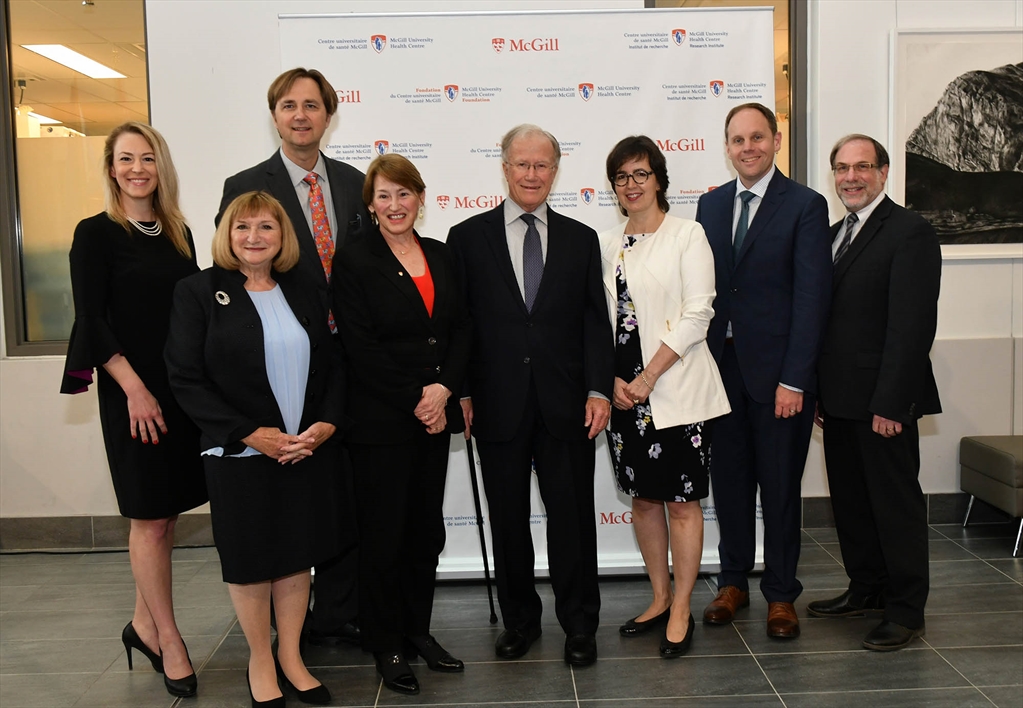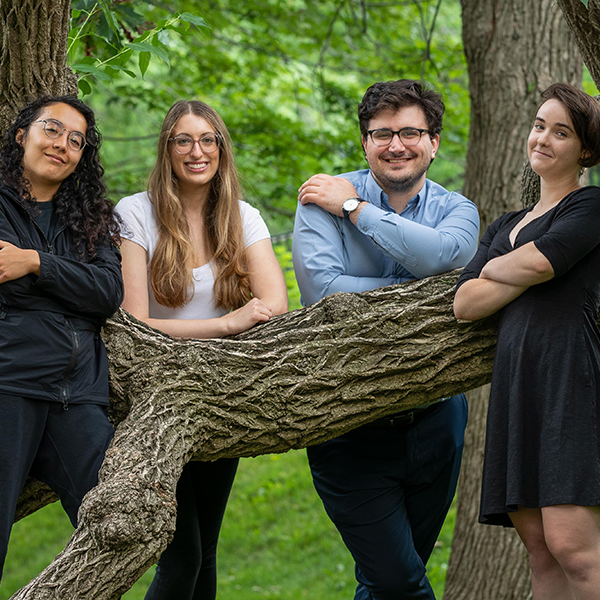As a young physician in San Francisco early in his career, Don Sheppard was on the front lines of the HIV crisis and saw first-hand the devastating effects the disease would have as it attacked the immune systems of its victims, exposing their bodies to opportunistic and fatal infections. But that same year, he also witnessed how new antiretroviral medications turned what had been a death sentence into a chronic but manageable illness.
“I lived through this unbelievable experience in modern medicine where, over the course of a month, people literally got up from their death beds and walked out of the hospital,” recalls Sheppard, a professor in the Department of Microbiology and Immunology at McGill’s Faculty of Medicine, and director of the Division of Infectious Diseases at the McGill University Health Centre (MUHC).
Now, two decades later, he and his colleagues at McGill, the MUHC and the Jewish General Hospital are poised to bring new scientific advances and a growing understanding of the human immune system to the fight against a new set of infectious and immune-related disease.
An extraordinary $15-million gift from the Montreal-based Doggone Foundation will establish the McGill Interdisciplinary Initiative in Infection and Immunity. McGill’s Faculty of Medicine and the Research Institute of the McGill University Health Centre (RI-MUHC) each receive $7.5 million for the project.

It will bring together more than 250 investigators from across the University and McGill-affiliated hospitals research communities to develop innovative solutions to infectious and immune threats to human health – and translate those discoveries from the lab to patients and hospitals in Canada and around the world.
The way Sheppard sees it, the new McGill initiative comes at an “incredibly exciting” time.
The significant threats posed by drug-resistant microbes and infectious diseases are now very much on the public’s radar. “At the same time, there is an explosion of knowledge in the field of how our immune systems fight infections that has given us the opportunity to move forward,” he says.
“And finally, there’s a fundamental will here at McGill to work together to find those solutions,” adds Sheppard, who will head up the initiative as its director. “It is the right kind of perfect storm.”
Multi-disciplinary research teams making up the project will focus on four themes: antimicrobial resistance, emerging and re-emerging diseases, infections in vulnerable populations, and diseases of altered immunity. Each theme is composed of three priority areas: fundamental discoveries, new diagnostics, and solutions such as new vaccines and immunotherapies.
“This is a very translational initiative. It starts with the patients and it ends with the patients. That’s our goal,” says Marcel Behr, MSc’95, the initiative’s co-director. Behr heads the McGill International TB Centre and is the associate leader of the Infectious Diseases and Immunity in Global Health Program at the RI-MUHC.
The project is unique, according to Behr, partly because of its McGill-wide scope, reaching across traditional silos and bringing together hospital research institutes.
“We think that harnessing the creative power of 250 investigators for a single purpose is the secret to success,” says Sheppard whose lab is at the RI-MUHC.
“Scientists no longer should be working like artisans… sitting in their own corner doing their own thing. It’s time to move our approach into the modern era.”
Infectious diseases pose a threat at home and abroad. They’re a leading cause of mortality worldwide, and also pose a risk to Canadians because of uncontrolled epidemics and rising rates of antibiotic resistance.
The World Health Organization predicts that “we won’t be able to count on antibiotics working reliably by 2030, 2050 – depending on which particular report you read,” says Sheppard, who notes that big pharma has gotten out of antibiotic discovery.
“We want to build the generation of next antibiotics and they won’t be the traditional ones. These are going to be therapies that manipulate our own bodies into either cohabitating with microorganisms or eradicating them from the parts of our body where we don’t want them.”
Advances in understanding the immune system have opened the door for scientists to develop new ways to reprogram our natural defences against infections – and also to fight immune-related diseases.
In fact, the Initiative’s largest theme will focus on diseases of altered immunity, everything from cancer to inflammatory bowel disease.
“All of those diseases are now treated by reprogramming the immune system. And by doing so, we’re gaining these unbelievable insights into how immunology works, and how it interacts with microbiology,” says Sheppard.
The McGill teaching hospital network has “a powerhouse” of cutting-edge immunologists at the forefront of this type of research, Sheppard says. Moreover, the project also benefits from the presence of 100 clinician-scientists who have a foot in the clinical and scientific worlds, and can bridge these two spheres.
“This innovative initiative is a great example of the direction in which the Faculty of Medicine is headed,” notes Philippe Gros, the Faculty’s vice-dean of life sciences. “It is a strategic priority for us, one that builds on longstanding strengths across disciplines in McGill’s research community and, ultimately, will lead to better health outcomes for people around the globe.”
Principal Suzanne Fortier, BSc’72, PhD’76, and Martine Alfonso, BSc(PT)’88, interim president and executive director of the McGill University Health Centre, both expressed deep gratitude to the Doggone Foundation for its visionary gift and the impact it will have.
“It allows us to draw on the broader McGill community’s intrinsic research strengths and mobilize our efforts around these complex health challenges,” said Fortier.
“The MUHC, RI-MUHC and our McGill-affiliated partners possess extensive experience, ambition and drive,” added Alfonso. “This exciting initiative will help assure that the right platforms and tools are in place so that our experts may pursue with our vast international network solutions to some of the world’s most pressing health issues.”
The late Elspeth McConnell, a former Montreal journalist, established the Doggone Foundation in 2011. Her philanthropic efforts included generous support over the years to the McGill University Health Centre.
Paul Marchand, BCL’66, LLM’85, executive director of the Doggone Foundation, called the Initiative a groundbreaking project that “has the potential to revolutionize and radically impact global health.
“The time to act is now, and the place to do it is here in Montreal, thanks to the world-leading researchers in the fields of infection and immunity at the MUHC and McGill. It is these types of transformational and collaborative initiatives that the Doggone Foundation is inspired to support,” he said.
Philanthropic support will also be sought from other sources to expand the initiative. Research teams will be able to begin patient-centered projects beginning in 2019, marshalling their efforts around threats to human health with the goal of powerful results for patients.
The relevance of those past lessons at the turning point in the HIV crisis isn’t lost on Don Sheppard.
“It was an incredible time, but it also showed me that if we actually apply research with the right social pressures, the right investment and the right motivation, you can tackle any disease because there was no disease harder, medically speaking and scientifically, than HIV. There still isn’t.”


